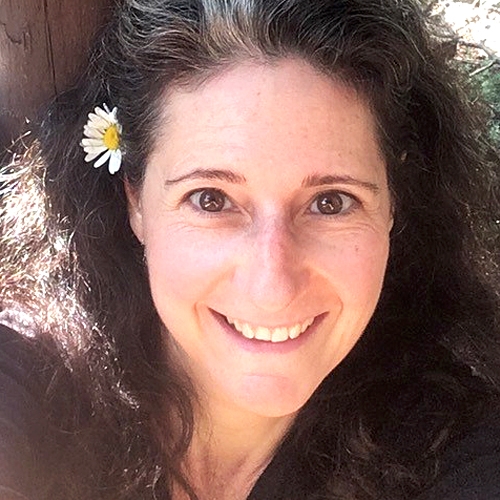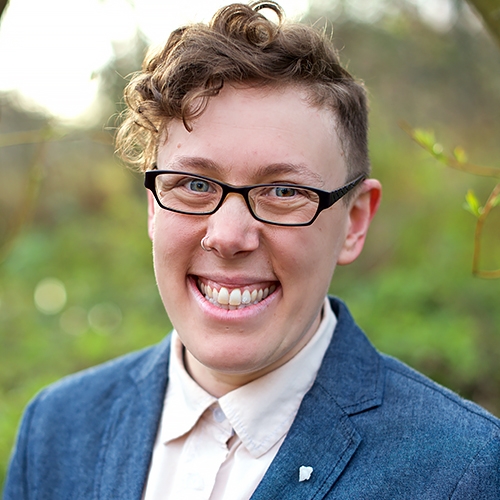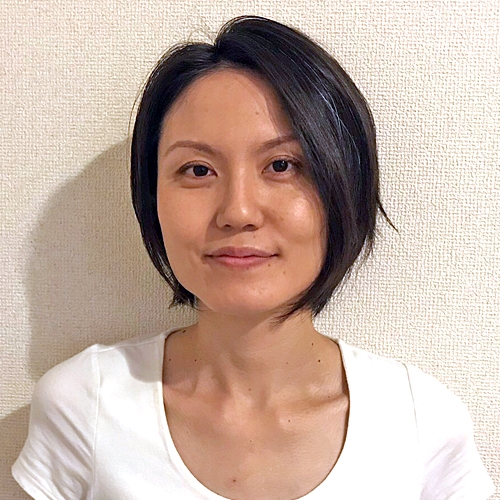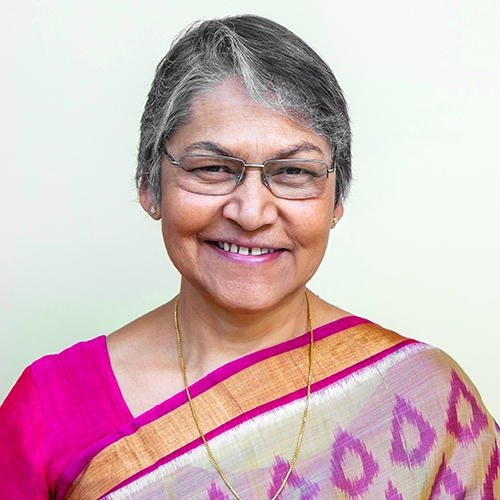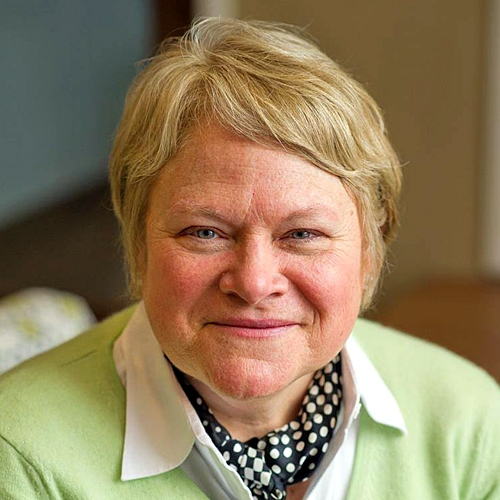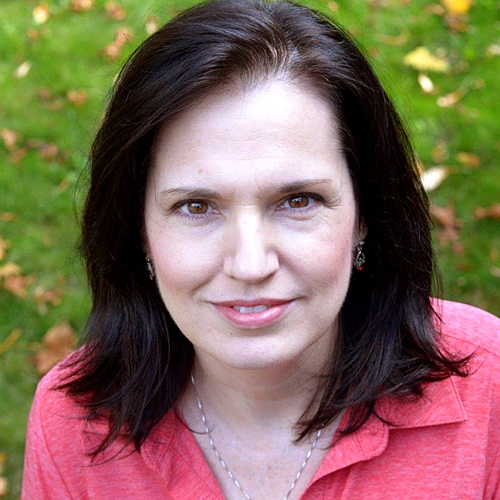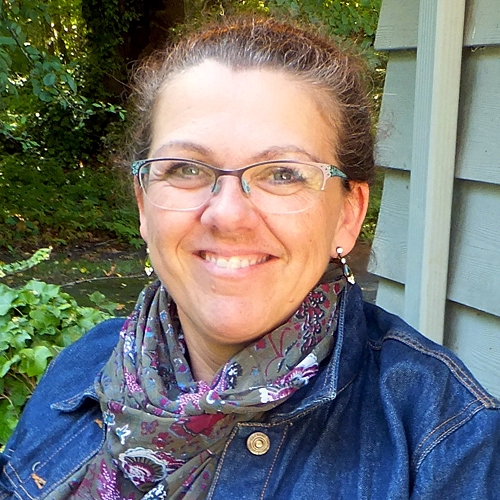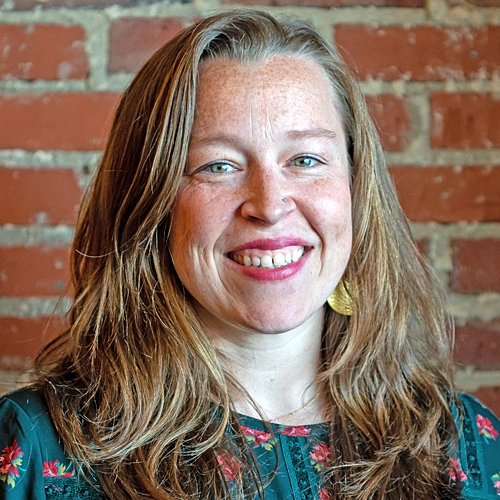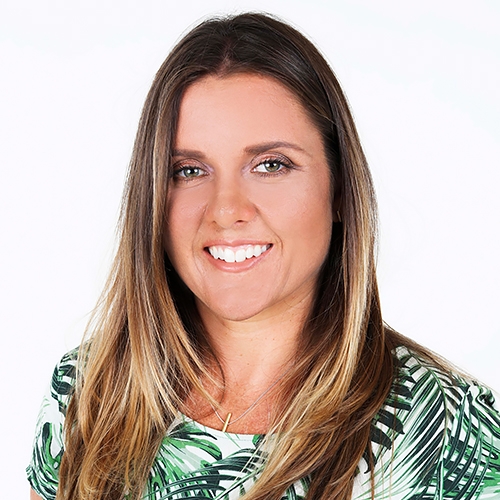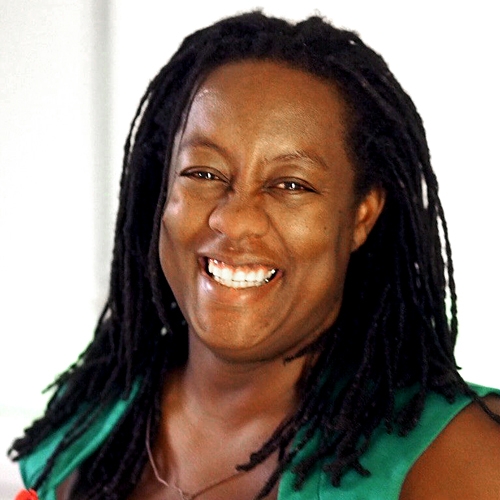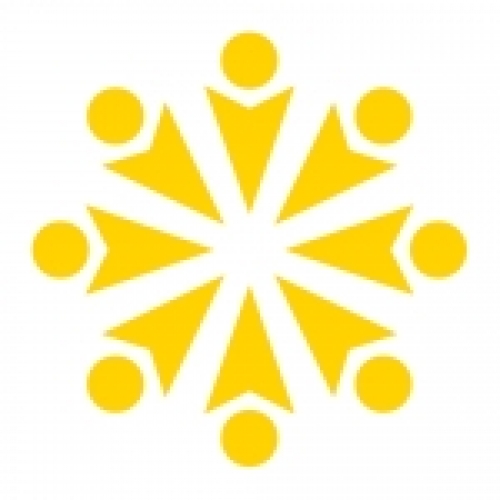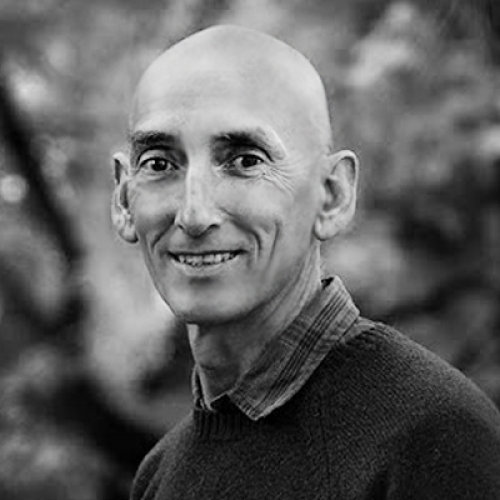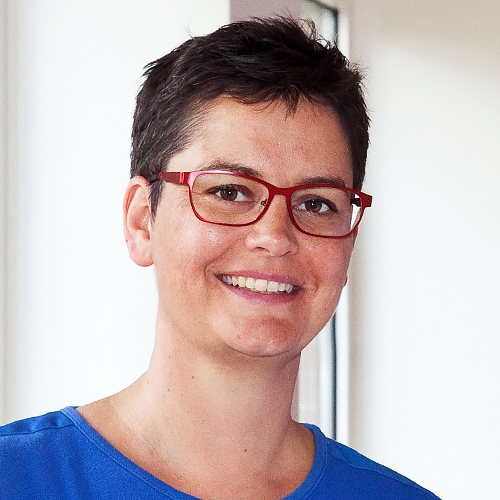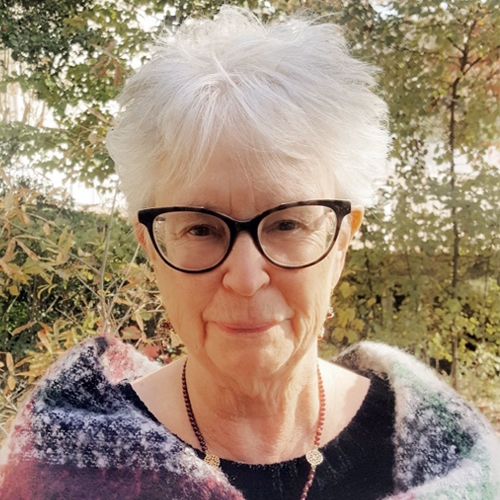 2020 Speakers & Topics
2020 Speakers & Topics
Adrienne Leeds is a Certified Professional Midwife and Clinical Herbalist. After numerous women told her she had ""midwife energy"" she heeded the calling. Adrienne has studied birth and women's health with Wise Womanhood, The Matrona, The Association of Texas Midwives' Midwifery Training Program, Ysha Oakes’ Sacred Window, and Dr. Rosita Arvigo. She is a graduate of the Rocky Mountain Center for Botanical Studies' 3-year Clinical Herbalism program. Adrienne apprenticed with two homebirth midwives and completed a month-long midwifery internship at a teaching hospital in Cusco, Peru. She is a married mother of two homebirthed children.
Postpartum thyroiditis affects 5 - 10% of women in the USA and 1 in 12 women worldwide. Possessing a quite variable presentation, it can manifest as hyper- or hypothyroidism alone, or as a period of hyperthyroid followed by hypothyroid. Treatment is complicated by the breastfeeding dyad. Prescription medications as well as complementary and alternative therapies may be considered.
Cora Beitel is a midwife and community organizer whose people are settlers of European Jewish ancestry. They work and live on the traditional and unceded homeland of the Coast Salish people. Cora is a founding member of the Strathcona Midwifery Collective, a practice located in the Downtown Eastside of Vancouver where they serve a diverse clientele, including many queer and trans clients. As well as provide clinical care, they run a Trans and Queer Pregnancy and Parenting group and provide education on inclusive care to diverse health care providers in the hospitals and the community setting. When not working, they are spending time with family, sharing food, on their bike or out in nature as much as possible.
Midwives are well situated to provide inclusive care to our trans and non-binary clients and families. Our grounding in client-centred care, informed choice and choice of birth place are an asset when caring for pregnant people and their families who may have experienced discrimination in the health care system and in society in general. Expertise in trauma informed care can be utilized and broadened to a focus on trans informed care to facilitate safe, respectful and celebratory pregnancy, birth and postpartum care. This talk will explore how to build inclusive practices and philosophies of care. This will allow for a deeper conversation around safety for our clients as well as for midwives and other health care providers.
Dr. Eriko Shinohara is a certified nurse-midwife in Japan. She worked at University hospitals, birth centers, clinics and psychiatric clinics as a midwife. During her career she attended many natural physiological births, especially working at birth a center. After her graduate Ph.D program at St.Luke’s International University, she started her career in research and teaching, she is now Assistant professor at Tokyo Healthcare University.
In Japan, midwives are not allowed to suture, except for in emergencies. In this presentation we will discuss the practice of “waiting” and supporting the natural process that allows a woman to birth her baby gently. We also will be discussing practical skills that help prevent lacerations via a gentle hands-on technique. In cases when the midwife does need to intervene, the internal exam should be minimal and gentle to prevent perineal edema and laceration. In this presentation we will be introduced to the kurenme birth clip. These small metal clips have been used by Japanese midwives for many years to treat perineal tears and as an alternative to suturing of small tears that could otherwise cause additional trauma to the area. In this presentation, we will overview and learn how to use the birth clip in a clinical situation.
Dr Evita Fernandez, an obstetrician with three decades of experience, a Fellow of the Royal
College of Obstetricians and Gynaecologists is presently the Chairperson of the Fernandez
Foundation under whose banner, the 72 year old Fernandez Hospital is managed. She strongly
believes in empowering women to make choices, about issues surrounding birth. She is a
strong supporter of respectful maternity care and in 2011 launched the Professional
Midwifery Education and Training Programme which initiated the campaign PROMISE
(PROfessional MIdwifery SErvices) – committed to creating a national cadre of professional
midwives, vital to the care and delivery of low-risk pregnant women.
Fernandez Hospital is now recognized as a national training institute for midwifery educators.
With her keen interest in academics, Fernandez Hospital with 10,000 births a year has evolved
into a teaching hospital. A prolific speaker, Dr Evita has received several awards for her efforts
in enhancing quality care to women of all age groups.
When a woman enjoys a physiological birth (spontaneous onset of labour without medical interventions) she experiences a deep sense of accomplishment, fulfillment and empowerment. Pregnant women if given the right evidence based information on the normal physiology of labour and birth; enlightened on the options of comfort measures to help cope with the pain of labour will feel more confident to a birth without unnecessary interventions.
The ACOG Committee Opinion No. 76, February 2017, suggested evidence based strategies for low-risk pregnant women. Delaying admission until active phase (> 6cm cervical dilatation), monitoring the fetal heart intermittent auscultation with a hand-held Doppler for monitoring the fetal heart; remaining mobile and upright; ensuring adequate intake of oral liquids and /or food, the presence of a supportive birth companion, the avoidance of unnecessary IV oxytocin infusion, leaving the bag of membranes to break spontaneously, to birth in the position of choice, to hold the baby skin to skin and initiate early breastfeeding are effective steps towards a natural birth. All of this can be offered by a professional midwife trained to meet global standards of competence as outlined by WHO/ICM.
Dr. Breedlove is a past president of the American College of Nurse-Midwives. In 2017 she formed a consulting company, Grow Midwives LLC, to educate Physicians and Hospitals and support Midwives in the design and scaling of best practices in collaborative care models. Prior to consulting she was on faculty 17 years as Professor of Nursing and Midwifery at Shenandoah University and University of Kansas School of Nursing. She co-founded the first free-standing birthing center in Topeka, Kansas in 1979, the first Midwife service in Kansas City, Missouri in 1994, and established the University of KS Midwifery program in 1999. In 2016 she co-founded March for Moms with Dr. Neel Shah and has served as President three years. March for Moms is a new non-profit organization working to align and coordinate the efforts of families, healthcare providers, policymakers and other partners acting to achieve the best possible health and well-being of all mothers. In 2019 over 40 stakeholders joined for the third national rally on the Washington DC Mall. In 2018 Dr. Breedlove edited and launched a book for first-time parents navigating the first six weeks of pregnancy titled, Nobody Told Me About That!
Expecting parents, particularly those anticipating first-time parenthood, are most ready to learn about pregnancy, labor and birth. Much focus and attention for expecting families center on these periods of uncertainty and often fear. Our natural tendency is to understand and gain knowledge of what impacts us most at times we experience an event. Consequently, for new parents, emphasis is placed on preparing for childbirth with little education or time dedicated to preparedness for parenting. Most families in the US experience birth in-hospital with discharge (following normal vaginal birth) by 48 hours. Speaking with numerous families, anecdotal evidence shows the typical US family experience less than three hours of education on care for self and newborn prior to being home with their baby. The initial weeks of parenthood are a time of universal vulnerability. And also bring one of the most challenging periods of transition from a confident adult to an inexperienced, first-time parent. Many parents express feeling lied to and being set up for the wildest shock of their life- being someone’s parent. Identifying gaps in preparedness in parenting will assist midwives, nurses and doulas in providing families with real information in real time.
Kimber MacGibbon, RN, is the Executive Director and Co-Founder of the Hyperemesis Education and Research (HER) Foundation. She worked previously as an ICU nurse, a medical-legal consultant, and as a product manager in medical technology and nutraceutical markets. She has been a consultant on innumerable hyperemesis gravidarum (HG) cases, developed clinical tools and educational materials for both clinicians and families, and coauthored more than 24 peer-reviewed research studies with leading universities. With over 20 years of HG management experience, including her own HG pregnancies, she has extensive insight into best practices for HG management. Her passion is improving assessment and treatment of HG to reduce maternal and fetal morbidity and mortality.
Hyperemesis gravidarum (HG) is described as severe nausea and vomiting during pregnancy, which often results in dehydration, nutritional deficiencies, metabolic imbalances, and debility. Early diagnosis and treatment are crucial to prevent serious morbidity and mortality, and to promote healthy outcomes for both the mother and baby. Obstetrical clinicians can reduce maternal suffering and prevent serious complications through early and accurate assessment followed by effective therapeutic interventions. This session will discuss best practices in the assessment and management of HG patients.
Dr. Lenora Marcellus is an Associate Professor in the School of Nursing at the University of Victoria. She has practiced as an RN for over 30 years in a range of maternal-infant settings and roles. Her current research interests include perinatal substance use, neonatal opioid withdrawal, and supporting infants in foster care. She is a member of the Canada Fetal Alcohol Spectrum Disorder (FASD) Partnership Network Action Team on FASD Prevention from a Women’s Determinants of Health Perspective.
Drug and alcohol use during pregnancy continues to be a substantial global health and social concern. In this workshop, we will reflect on the history of how society and health care providers have viewed and treated women who use substances during pregnancy. Using the perspectives of trauma informed care, harm reduction and health equity, we will explore recent developments in perinatal and neonatal evidence-informed practice in the care of women and infants. Exemplars of innovative community and hospital programs will be shared.
Madeline Murray is a homebirth baby, homebirth turned hospital-transfer mom, midwife on a mission to make more midwives and bring the midwives model of care to more American families. Madeline’s passion project, Believe in Midwifery is designed to raise awareness among midwives and mothers about the perils of the on-call lifestyle and the changes in practice necessary for making midwifery careers more attainable for students and more sustainable for practicing midwives. Through writing, speaking engagements and personalized consultations Madeline hopes to encourage midwives to begin working with one another to reduce burnout and to become aware of their own unique needs to make their midwifery careers long lasting.
The current culture of maternity care in the United States is at best lacking and at worst dangerous. With maternal mortality and postpartum depression rates at an all time high, unnecessary inductions and cesareans still incredibly common and breastfeeding rates staggeringly low, it’s time for a change. Midwifery care has been proven to improve almost all of those statistics but as it stands, there are not enough midwives to impact this kind of drastic change we need. The reason we don’t have enough midwives is because the rates of burnout in midwifery are so high. It’s time for midwives to join forces and begin taking care of themselves and each other to avoid burnout so that we can help more women have positive and empowering birth experiences and change the current culture of maternity care. This presentation will discuss why it’s so important to avoid burnout and give practical suggestions on how to avoid burnout both in midwifery education and midwifery practice.
Margreet co-Founded the Healthy Mom and Baby Clinic in Jeffrey’s Bay, South Africa (www.hmbc.co.za). This is a non-profit organization committed to delivering professional private care to the most vulnerable and underprivileged women of their community. She also works as a private midwife and is known as ‘The Surfing Midwife’ (www.thesurfingmidwife.com). She is currently the managing director at Sister Lilian Centre (www.sisterlilian.co.za) and Sensitive Midwifery (www.senstivemidwifery.co.za) a national education platform for midwives and parents. She finds herself in a transitioning stage where her local, small scale operations, are developing into a national and international platform to be a voice and champion the midwifery profession as a whole. This is in line with her PhD, which is looking at strategies to scale-up clinical midwifery practices in South Africa. She can call herself a pro-surfer as she has placed herself twice at the WSL World Longboarding Championship and still compete in various surfing competitions in South Africa.
She obtained her Bachelors degree in Midwifery from the Artevelde Hogeschool in Gent, Belgium (2002). She furthered her studies with a BcurHons in Advanced Midwifery and Neonatal Nursing Science (2012), a Master’s Research in Midwifery (2014) and a Doctorate in Philosophy (PhD) in Midwifery, all at the Nelson Mandela University in Port Elizabeth, South Africa.
Despite a steady drop globally in maternal and newborn deaths since 1990, thousands of women and newborns still die each year during pregnancy and childbirth. South Africa, together with other countries, failed to achieve the Millennium Development Goal of reducing maternal mortality by three quarters by 2015. This is despite the positive efforts made in the country towards achieving these goals. However, much more still needs to be done. For that reason, proper and safe care of labouring women remains the identified major focus to prevent these deaths.
The study was the culmination of an investigation into the problem of poor performance regarding maternal and perinatal outcomes as identified by the researcher. The aim of the study was to understand the experiences and perceptions of the women and the midwives regarding the clinical practices in public maternity units in South Africa in order to facilitate the scaling-up of the midwifery practice.
The study found that midwives were committed to provide quality care but major factors needed to be addressed to facilitate scaling-up of clinical midwifery practices. The midwifery profession needed to be strengthened and an enabling working environment provided. Based on the results of the study as well as the theoretical, conceptual and contextual framework, two strategies were developed:
Strategy 1: Empowering midwives to deliver woman-centred care in public sector maternity units
Strategy 2: Creating an enabling work environment in order to deliver woman-centred care in public sector maternity units
Award winning doula and birth activist Mars Lord has been a birth keeper for well over a decade. After attending the Paramana Doula course with Michel Odent and Lilliana Lammers, a spark was lit within her and the passion that she discovered for birth and supporting parents has fired her soul ever since. She has had the privilege of working with hundreds of families. A birth activist, with a desire to see the ‘colouring in of the landscape of birth’ and finding out the reasons for the maternal and neonatal morbidity rates amongst the BAME community, Mars created Abuela Doulas a doula preparation course primarily, but not exclusively, for women of colour. Her desire for reproductive justice led to the creation of the ‘Reproductive Justice Retreat’. Mars was recently recognised in the Mayor of London's Hidden Credits campaign and continues to speak out for cultural safety and reproductive justice.
The results of the MBRRACE report 2018, a UK study into maternal deaths made me want to look beyond the statistics and see what, if anything, could be done to close the disparities gap. Much of my knowledge has been gained via personal stories, blog posts, articles, news reports and reading research about black maternal deaths, as well as from the MBRRACE study itself.
Looking into the statistics caused me to want to know if they were specific to the UK and the West and if so, why? By discovering that the outcomes for black women were better on the African continent, I began to read about the differences in lifestyles to see if that made a difference. Acknowledging systemic and structural racism brought many issues to light. From this I was able to hypothesise that implicit and explicit bias are significant factors in the poor outcomes. The inevitable conclusion to this, in my mind, was the need for people to be supported by those who would work without, or with a minimum level of bias ergo black women being supported by black women.
There needs to be a more holistic approach to the care of black women, so that non black birthkeepers are also able to give good, safe support.
Madeline Murray, CPM, is a homebirth baby, homebirth turned hospital-transfer mom, midwife on a mission to make more midwives and bring the midwives model of care to more American families. Madeline’s passion project, believe in midwifery is designed to raise awareness among midwives and mothers about the perils of the on-call lifestyle and the changes in practice necessary for making midwifery careers more attainable for students and more sustainable for practicing midwives. Through writing, speaking engagements and personalized consultations Madeline hopes to encourage midwives to begin working with one another to reduce burnout and to become aware of their own unique needs to make their midwifery careers long lasting.
Paul Golden, RM RN PGCE (teaching) Mediator (AMINZ), is a midwife working independently and in a variety of govt hospitals in the UK NZ Australia Asia etc. Paul trained in law and mediation. He lectures on midwifery, law, human rights in childbirth globally, including: Russia, China, India, Europe, etc. He is a neonatal intensive care nurse and provides newborn feeding support including tongue tie release (frenulotomy). He has a special interest in twins as he and his sons are identical twins. He has been working with birth for over thirty years and is now writing and filmmaking on global human rights and childbirth choices.
Margreet Wibblelink, PhD, co-Founded the Healthy Mom and Baby Clinic in Jeffrey’s Bay, South Africa (www.hmbc.co.za). This is a non-profit organization committed to delivering professional private care to the most vulnerable and underprivileged women of their community. She also works as a private midwife and is known as ‘The Surfing Midwife’ (www.thesurfingmidwife.com). She is currently the managing director at Sister Lilian Centre (www.sisterlilian.co.za) and Sensitive Midwifery (www.senstivemidwifery.co.za) a national education platform for midwives and parents. She finds herself in a transitioning stage where her local, small scale operations, are developing into a national and international platform to be a voice and champion the midwifery profession as a whole. This is in line with her PhD, which is looking at strategies to scale-up clinical midwifery practices in South Africa. She can call herself a pro-surfer as she has placed herself twice at the WSL World Longboarding Championship and still compete in various surfing competitions in South Africa. She obtained her Bachelors degree in Midwifery from the Artevelde Hogeschool in Gent, Belgium (2002). She furthered her studies with a BcurHons in Advanced Midwifery and Neonatal Nursing Science (2012), a Master’s Research in Midwifery (2014) and a Doctorate in Philosophy (PhD) in Midwifery, all at the Nelson Mandela University in Port Elizabeth, South Africa.
It’s a wonderful feeling when you’re able to support a family through birth in a way that leaves them feeling empowered as they start their journey into parenthood. Those moments are heartwarming and we celebrate those achievements for both our clients and ourselves. What doesn’t get talked about very often however, is the struggles that go alongside those triumphs. The caregiver burnout, compassion fatigue, overwhelm, guilt, and feelings of failure that can derail our confidence in ourselves as care providers. This panel digs deep into the realities of working as a midwife, examining both the struggles and possible solutions.
Paul is a midwife working independently and in a variety of government hospitals in the UK, NZ, Australia, Asia etc. Paul trained in law and mediation. He lectures on midwifery, law, human rights in childbirth globally, including: Russia, China, India, Europe, etc. He is a neonatal intensive care nurse and provides newborn feeding support including tongue tie release (frenulotomy). He has a special interest in twins as he and his sons are identical twins. He has been working with birth for over thirty years and is now writing and film-making on global human rights and childbirth choices. He is focused on the next generations and womens choices. He has a daughter who is his greatest teacher.
Mediation is a peaceful way to resolve and prevent conflict. By drawing attention to options strategies and reframing the real issues parties can release stuckness to find positive ways of communicating. We can mediate for each other and ourselves through awareness & self care.
Family conflict affects us all. Midwives have their own families at home and their familiar relationships at work. The families we care for may have their own conflicts. Mediation will bring mindfulness to being with ourselves with increased sense of calm. Midwives are often being all things to others and not finding time to be with themselves. Connecting to Mindfulness can bring mediation into our relationships and improved communications.
Sara Kindberg has been a midwife since 1999, working in hospitals in Denmark, Norway, Sweden and Greenland. Perineal care and especially surgical repair of perineal lacerations has been her clinical and academic focus and subject of her Master of Health Thesis in 2005 and her PhD dissertation in 2008.
The research highlighted an unmet need for hands-on training and bedside supervision among midwifery students and midwifery colleagues.
The Danish Ministry of Innovation and Research rewarded Sara with a grant to commercialise her knowledge and passion for training perineal repair into an online resource: GynZone.net. Sara was nominated “Female Entrepreneur of the Year” in 2011.
GynZone offers online learning about the diagnosis and surgical repair of perineal lacerations from 1st to 4th degree tears.
Sara currently also works as a perineal care specialist at Aarhus University Hospital in Denmark and is managing the first Scandinavian midwifery led pelvic floor unit that offers early secondary perineal repair.
The World Health Organization (WHO) highlighted this set-up of a midwifery-led pelvic floor clinic as an example of excellent clinical practice in the European compendium of good practices in nursing and midwifery towards Health 2020 report.
Since 2013 Aarhus University Hospital has offered all women a postnatal check-up 2-3 days after birth. We provide services for approx. 4.000 vaginal births annually.
More than 90% of primiparous women sustain perineal injury or lacerations to the labial area that requires surgical repair following vaginal birth.
I will present cases and photos showing examples of normal, delayed and pathological healing of different types of perineal lacerations.
1) Healing of 1st and 2nd degree perineal tears
2) Mediolateral episiotomies
3) Healing of 3rd and 4th degree tears (anal sphincter injuries)
Inadequate primary perineal repair or early suture break down was found in approx. 1% of the population. We wish to share experiences from a case study of 250+ cases including 1st -2nd degree lacerations and mediolateral episiotomies.
Our findings with more than 40 photo documented cases featuring different healing outcomes are available as an online resource through the website GynZone.net.
Whapio has been an Independent Midwife and Educator since 1985. In 2001, she founded The Matrona to provide an entry-level Holistic Midwifery program for aspiring midwives. In 2005, The Matrona became a non-profit organization dedicated to providing accessible and affordable birthing wisdom to midwives and birth workers, especially in Mexico and other Latin countries. Currently, The Matrona offers an Accessible Doula Program in the US and Mexico whereby doulas are certified and return to their communities to assist families.The Matrona also offers an online Holistic Midwifery Program.
Whapio speaks frequently and passionately about the consciousness of birth.
"Consciousness is the missing element in caregiving that could really raise the bar...understanding the conscious aspect of birth and subsequently responding to the desires of what women and families want.
I believe if we made consciousness a priority many of the unnecessary and archaic practices that endanger a woman's body and soul would naturally fall away. More women and families would have empowering and satisfying experiences and this will be the blueprint through which we transform the earth through birth."
We will view birth through the lens of a physiological and transformative event that is satisfying and empowering rather than a painful ordeal that must be endured. More and more women are aware of the transformative potential of their births and are showing up. They are now looking for caregivers...doulas, doctors, midwives, nurses...who can accompany them, witness them and not interfere. They are seeking deeply connected conscious caregivers.
We will focus on 4 salient points:
1. Women do not give birth in 'ordinary consciousness' but rather in a deeper and authentic state of consciousness that expands their perspective.
2. What is that deeper state of consciousness, how can we language it, how can we get there and be in tandem with women rather then need to manage them?
3. All women have instinctual responses to their births, whether they access them or not. They much appreciate being validated, trusted and not disturbed in acting on their instinctual responses.
4. How can we as caregivers trust birth, trust women and trust ourselves to validate a woman's instincts and nurture and facilitate her to unfold these responses?
 Dr. Speakers Full Name
Speaker Credentials
Dr. Speakers Full Name
Speaker Credentials
Annet Mulder first became interested in breastfeeding in the year 2000, when she became a mother for the first time. During and because of her own breastfeeding experiences, in 2002 she became a volunteer with the Dutch breastfeeding Organization and in 2008 sat for and passed the exam administered by the International Board of Lactation Consultant Examiners. As an International Board Certified Lactation Consultant, she now
Annet Mulder first became interested in breastfeeding in the year 2000, when she became a mother for the first time. During and because of her own breastfeeding experiences, in 2002 she became a volunteer with the Dutch breastfeeding Organization text text text text more name mulder first became interested in breastfeeding in the year 2000, when she became.
 Dr. Speakers Full Name
Speaker Credentials
Dr. Speakers Full Name
Speaker Credentials


